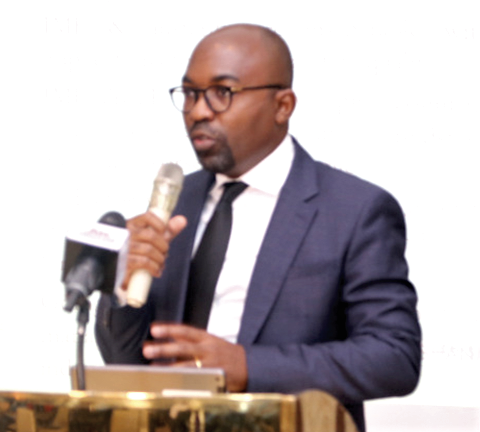
Develop concise economic policies: IMF advises government
The Resident Representative of the International Monetary Fund (IMF) in Ghana, Dr Albert Touna Mama, has advised the government to develop a clear and concise set of policies to guide the economy out of the current challenges.
He said while Ghana had buoyant growth prospects post-COVID-19 pandemic, its finances were in a precarious situation, which required tough decisions, discipline, hard work and commitment to address.
Dr Mama, who gave the advice at a public forum on the economy in Accra yesterday, said a rescue package must be heavy on expenditure cuts that did not jeopardise social spending, along with increased revenue generation.
It must also be realistic, credible, concrete and sustainable for the international market to accept and believe in, he said.
Dr Mama said the issues confronting the country were not about whether or not it should return to the IMF for a bailout programme.
Instead, he said, they were about how it could be salvaged from the current challenges.
Advertisement
“For us, at the end of the day, whether the sick person takes care of himself or herself in the house or in the hospital, the point is the sick person needs to be treated," he added.
He said there was no doubt that a programme with the fund would be “extremely helpful, but we are mindful that that is not the direction the government wants to take”.
“So the focus should now be on what else needs to be done, so that we can deal with reforms and a policy package that confront us,” he said, adding that the fund was ever ready to support the government in whatever way possible to address the challenges.
Forum
The programme was organised by the Economic Governance Platform (EGF) and Advocates for Christ Ghana on the theme: “E-levy, IMF or What? Sustainable solutions to Ghana's debt crisis”.
It was chaired by the Executive Director of Penplusbytes, Mrs Juliet Amoah, and presentations made by a Deputy Minister of Finance, Dr John Kumah; Dr Mama; a Professor of Finance, Prof. Godfred Alufar Bopkin; an economist, Dr Charles Ackah, and an Economics researcher, Dr John Kwakye.
Challenges
Dr Mama further said while income levels were yet to return to pre-pandemic levels, inflation and the cedi were enduring enormous pressure, with the latter drifting outside the Bank of Ghana target band.
He said the fiscal deficit was projected to end this year at 12 per cent of gross domestic product (GDP), while the debt-to-GDP ratio would reach 83 per cent, requiring a credible strategy to address.
As a result of the debt situation, he said, interest payments now consumed more than half of tax revenue, causing investors to be nervous.
In terms of borrowing, he said while Ghana had been shut out of the international capital market, the cost of borrowing from the domestic economy had risen, with rates reaching 17 per cent.
Background
Many analysts, including Dr Bopkin and a former Minister of Finance, Mr Seth Terkper, have urged the government to take solace in the IMF for policy credibility, which would enable it to access funding from both international and domestic markets to prosecute its programmes.
The government, however, says it will not go to the fund for support but will mobilise resources from within.
